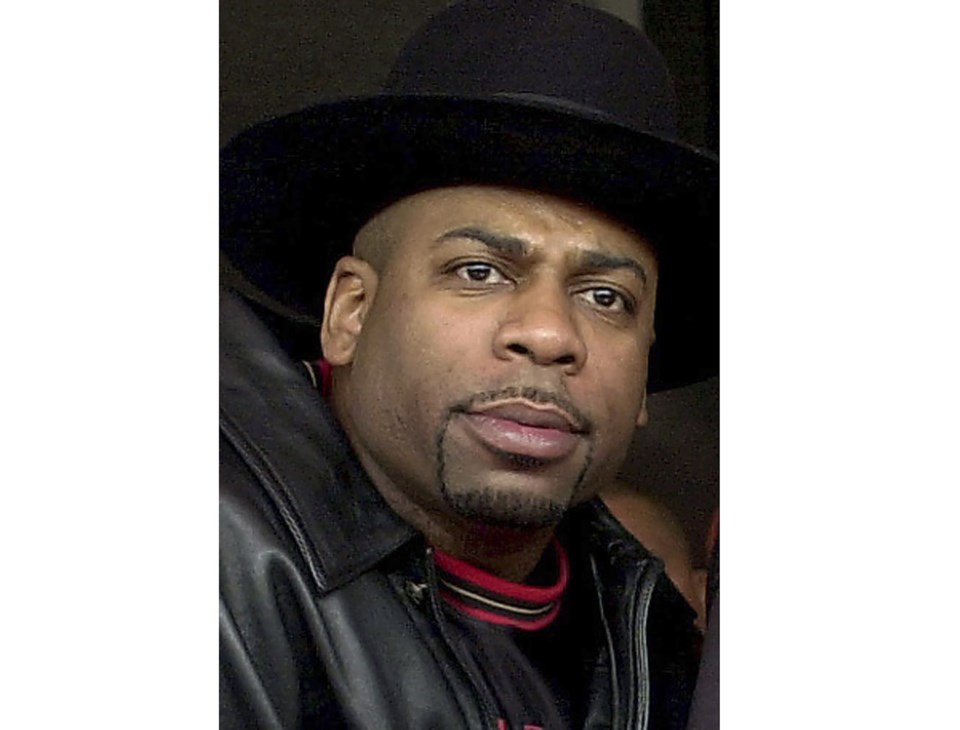NEW YORK (AP) — Defense lawyers sought a mistrial Thursday in the case against two men charged with the murder of Jam Master Jay, saying prosecutors improperly guided a witness to testify that one defendant confessed to her decades ago that he killed the Run-DMC star and told her “people get what they deserve.”
U.S. District Judge LaShann DeArcy Hall ultimately denied the mistrial, partly because the witness had made similar prior statements that could have been broached to jurors anyway. But the judge angrily told prosecutors that their questions to the witness had crossed the line.
“There was no need whatsoever” for the queries, she said, raising her voice, while jurors were out of the room.
The heated issue threatened for roughly an hour to upend the long-awaited trial in one of the most infamous acts of violence in hip-hop history. Jam Master Jay, born Jason Mizell, was shot dead in his recording studio on the evening of Oct. 30, 2002.
A childhood friend, Ronald Washington, and Karl Jordan Jr., the DJ's godson, are on trial. They have pleaded not guilty.
Washington's former girlfriend Daynia McDonald testified Thursday that he called her to tell her Mizell was dead, shortly after Washington had brought her to the studio to meet his celebrity friend. Stunned, she asked Washington how he knew of the DJ's death.
“He said, ‘Because I was there,’ ” she testified.
In a subsequent conversation, she told jurors, she asked Washington whether he had something to do with the killing, “and he basically said yes.”
Then Assistant U.S. Attorney Mark Misorek asked the questions that sparked the legal fireworks: “Did he say he killed Jam Master Jay?” and “Did he say that people get what they deserve?"
McDonald said yes to both.
After jurors left the room, the judge remonstrated with prosecutors over the questions. One of Washington's lawyers, Susan Kellman, requested a mistrial, saying that prosecutors had planted “a seed of prejudice” that couldn't be uprooted.
Assistant U.S. Attorney Artie McConnell said the government was only trying to keep McDonald's answers squarely on Mizell's killing and to ensure she didn't venture into other, off-limits topics. Prosecutors had “the best of intentions,” he said.
“Your logic doesn't follow, for me,” said the judge.
After lengthy discussion, DeArcy Hall decided the trial could continue, with a caveat: She told jurors to disregard the two questions and their answers.
Misorek was cleared to ask whether Washington “said anything else about Jam Master Jay's murder.”
“Um, he just said that he killed him,” McDonald replied, and that answer was allowed to stand.
Prosecutors and an eyewitness say Jordan shot the rap star while Washington stood at the door and brandished a gun. According to the government, the attack was spurred by bad blood over a drug deal.
Run-DMC was known for its anti-drug messages in songs and even a public service announcement. But prosecutors and another witness have said that Mizell turned to the cocaine trade for money as the groundbreaking 1980s rap group's career leveled off.
Attorneys for Jordan, 40, have said he was at his then-girlfriend’s home when Mizell was shot. Lawyers for Washington, 59, have said the government is bringing a slapped-together case against a man who was relying on Jay financially, not gunning for him.
Washington's attorney pressed McDonald Thursday on gaps between her testimony and a signed statement she gave police in 2002.
She testified that she visited Mizell's studio for a couple of minutes as night was falling, while the statement described her visiting the studio in the afternoon. Among other differences, she also described eating some snacks at the studio until about 1:45 p.m. and said Washington later checked in with a couple of midafternoon phone calls before he rang with the news of the rap legend's death.
McDonald said that “there was a lot going on” and she was flustered when talking to police. She said she was testifying truthfully.
“This has been a very big event in my life,” she said.
Jennifer Peltz, The Associated Press




